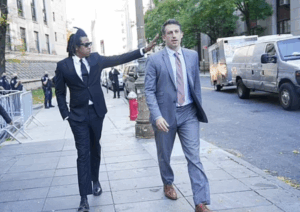In a bold move, President Trump has ordered 800 National Guard troops to Washington DC, asserting a public safety emergency and aiming to address crime and homelessness.
Trump Activates National Guard in Washington DC to Tackle Crime and Homelessness

Trump Activates National Guard in Washington DC to Tackle Crime and Homelessness
President implements federal oversight of city police amid claims of rising violence.
President Donald Trump has announced the deployment of 800 National Guard troops to Washington DC, a decision he describes as a necessary response to what he terms "complete and total lawlessness." The president, during a recent press conference at the White House, claimed the city is overrun by violent gangs and unsightly homelessness, declaring a "public safety emergency" in the nation’s capital.
Flanked by U.S. Attorney General Pam Bondi, Trump stated that he would also be taking control of the city’s police force in order to execute a crackdown on crime. His announcement came on the heels of a tumultuous weekend of heightened federal law enforcement activity in the city. "It's a liberation day in DC, and we're going to take our capital back," he proclaimed.
Despite Trump's assertions, DC Mayor Muriel Bowser has pushed back on the narrative of rampant crime. While acknowledging a spike in criminal activity in 2023, she maintained that recent statistics show a significant reduction in violent crime—indeed, it is at a 30-year low. Bowser stated, "The president is very aware of our efforts," and dismissed comparisons of DC’s safety to that of a war-torn region as “hyperbolic and false.”
The activated National Guard will consist of around 100 to 200 troops supporting local law enforcement at any given time, with the Defense Secretary confirming their arrival by the week’s end. This deployment leverages provisions from the District of Columbia Home Rule Act, which allows the president to assume control of the police under "special conditions of an emergency nature."
Mayor Bowser has expressed concern regarding the federal intervention, emphasizing the need for local governance. She indicated that Trump's view of the city may derive from his past experiences during the pandemic, which influenced perceptions of safety and crime.
Beyond crime, Trump specifically addressed homelessness, vowing to eliminate slums and emphasizing that a clean capital reflects the respect and dignity of the nation. However, local advocacy groups report progress in reducing homelessness over recent years, deeming Trump's plans for relocation of homeless individuals as ineffective long-term.
Protests erupted outside the White House as a demonstration against Trump's control of the city ensued, with chants calling for DC's autonomy. Critics argue that Trump's motivations stem from a desire for power rather than genuine concern for public safety. In his recent remarks, Trump linked his security concerns to attacks on federal workers and officials, framing the issue as a critical national threat.
In previous instances, Trump has deployed the National Guard in response to social unrest, with significant deployments occurring following events related to civil rights protests and the Capitol riots in 2021. As tensions mount in DC, this latest federal action has sparked nationwide discussions about governance, safety, and local autonomy.





















